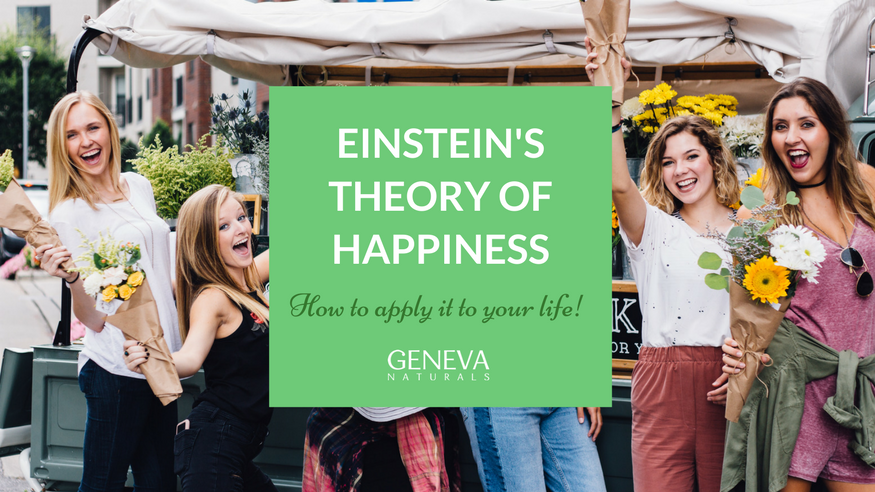Apply Einstein's Theory of Happiness to your Life


Many live their lives in the pursuit of happiness. Entire books, college courses, and seminars have been devoted to its study. We all seek it; we all deserve it—it’s listed in the constitution among our other unalienable rights, after all! Some may find happiness in simple, everyday things, while others are eluded by it their entire lives. For Albert Einstein, one of the greatest minds in history and father to some of the most complicated equations and theories, the secret to a happy life was surprisingly simple. Read about Einstein's theory to happiness, and discover how to apply it to your life!
Origins
Shortly after learning that he had won the Nobel Prize in Physics, Einstein was on a lecture tour in Tokyo, Japan. While staying in the Imperial Hotel, where hundreds of fans and well-wishers had gathered outside in hopes of seeing him, Einstein was jotting some thoughts and feelings when a bellboy knocked on his door to deliver a message. For one reason or another, instead of a tip, Einstein handed the young man two hotel letterheads with handwritten messages on each, telling him that with a little luck, they’d be worth more than a small tip some day (he was right; they recently sold at auction for over $1.5 million!). The first of two notes, now known as the Theory of Happiness, ready simply:
“A calm and modest life brings more happiness than the pursuit of success combined with constant restlessness.”
The second note contained an even more familiar adage:
“Where there’s a will, there’s a way.”
Real-life Application
So is the key to happiness really so simple? Well, yes. And no. Like most well known quotations, there’s more to it than merely understanding their meaning. Real change, and in this case, real happiness, can only be found in the application of those ideas. What makes Einstein’s theory of happiness so universal is that it can be applied to countless people in very unique ways. Here are just a few key principles of application to be learned from Einstein’s advice.
1. Find Joy in the Simple Things
Sure, it’s great to have new clothes, a nice home, and a sweet ride, but is your level of happiness dependent upon what you do or do not have? The “constant restlessness” that Einstein refers to is often born from the false connection between contentment and temporal possessions. Find joy in an experience instead of a purchase; enjoy time spent with someone instead of something (idea? take a vacation here with your loved ones). Shifting focus from what we have to what we are can bring us one step closer to true joy.
2. You Don’t Have to Work for your Worth
As babies, our worth is unquestionable, inborn, a part of the package. Yet as we age, society and other influences work hard to convince us that we are not of worth. So, we try to work to feel worthy again; a promotion, a degree, and that constant ‘pursuit of success’ feeds our sense of worth and defines how we feel about ourselves. To understand that your worth is innate, a part of your soul that is undefined by outside sources, is key to living a calm, modest, happy life.
3. Determination Breeds Happiness
Even Albert Einstein had moments of self-doubt, questioning even some of his now world-famous ideas and calculations. By the time he jotted down what would become invaluable advice for happiness, it seemed he understood that to succeed in anything, be it a project, a relationship, or a general pursuit of joy, having a strong-willed determination is key. He said it best: where there’s a will, there’s a way!
Also in Geneva Naturals

What Is A Retinoid Oil? Retinoid Oil Benefits, Uses, Effects & More

DIY Clay Mask Recipes for Clear Skin



